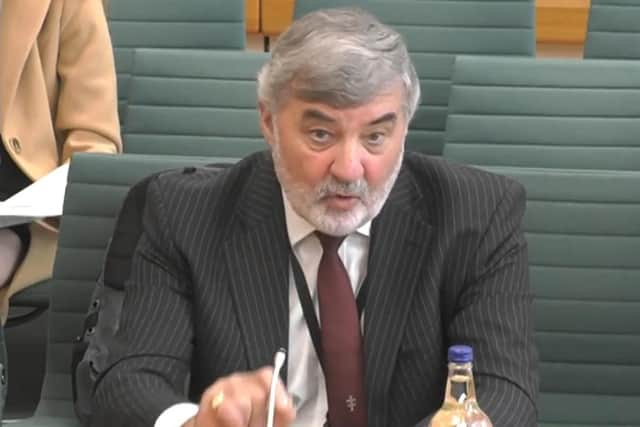'Super-Prod vs Super-Taig' – former Alliance leader airs objections to 'polarising' nationalist / unionist set-up at Stormont
and live on Freeview channel 276
He was giving evidence to the Northern Ireland Affairs Select Committee of the House of Commons this morning.
The committee is investigating “the effectiveness of the institutions of the Belfast/Good Friday Agreement”.
Advertisement
Hide AdAdvertisement
Hide AdOthers giving evidence were Baroness Foster (ex-DUP leader) and Mark Durkan (ex-SDLP leader).
Opening the session, Lord Alderdice was asked how happy he had been with the way the devolved government was to be set up as a result of the 1998 deal.
He said “ from the beginning” he had been “unhappy” about the fact decommissioning was not tied to prisoner releases, and about “the formation of the Executive”.
"I was never happy about the idea of what we in Northern Ireland terms characterised as Super-Prod and Super-Taig: so that you’d have these two main designations and the rest would be ‘other’.
Advertisement
Hide AdAdvertisement
Hide Ad"Because it seemed to me that what that’d do is push us to deeper polarisation.


"And though I think John Hume and David Trimble thought their parties would always be the two large parties, it was clear to me that that would not neccessarily be the case…
“At the start, there was a fair momentum. Some of the parties had not signed up to the agreement.
"But those parties that had – and even some of those that hadn’t: for example Dr Paisley – you got a sense was trying to make the thing work.
Advertisement
Hide AdAdvertisement
Hide Ad"But I think as time went on that vulnerability in particular and others began to emerge.”
He went on to say that we should distinguish between the “peace process” and the “political process”.
"The peace process has been very successful,” he said.
"Hardly anybody has been killed over a very long period of time. And that’s not to be sniffed at.
(You can view the figures for yourself here – Good Friday Agreement at 25: How death toll from Troubles violence changed in Northern Ireland after 1998 deal)
Advertisement
Hide AdAdvertisement
Hide Ad"Stopping the killing of people was really, really important for every conceivable reason. And that’s over.
"And for me one of the failings was people continuing to talk about a peace process, when actually we were talking about a political process – which is a different kind of thing altogether.”